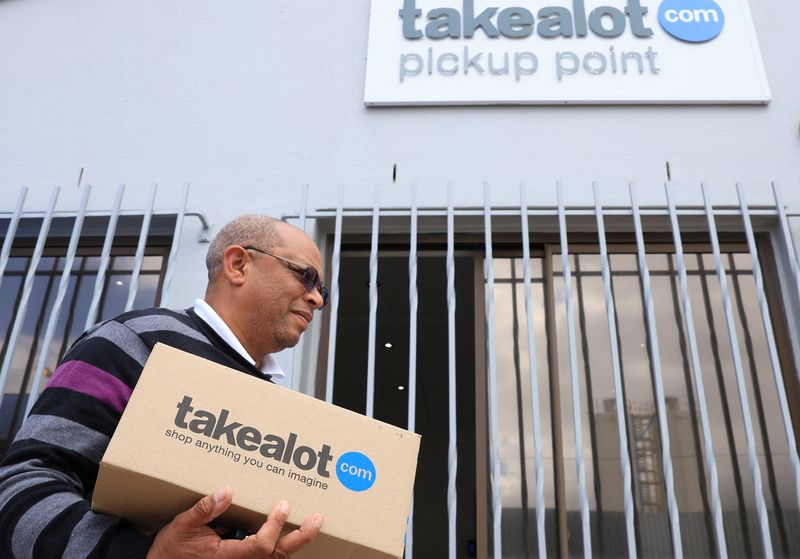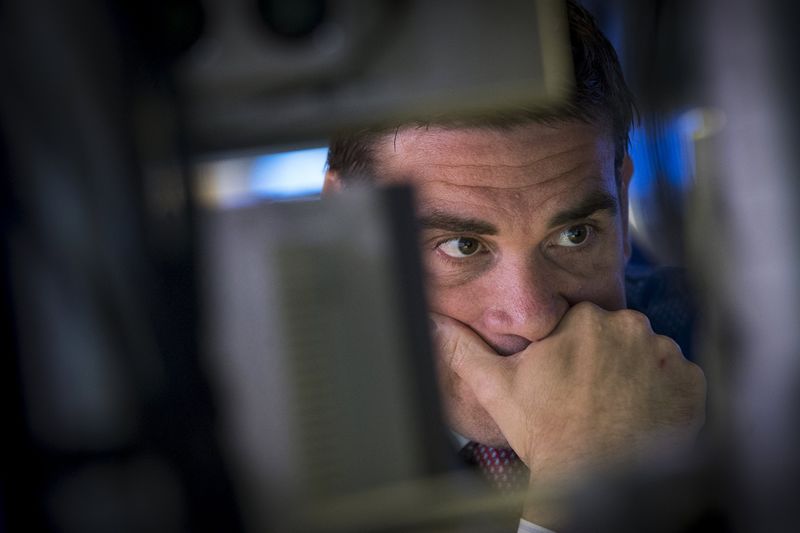By Nqobile Dludla
JOHANNESBURG (Reuters) – South Africa’s biggest e-commerce retailer, Takealot, has hired thousands of personal shoppers to help it penetrate townships and rural areas and fend off increased competition from global rivals, its CEO told Reuters.
Attracted by growth potential and South Africa’s strategic position, companies have invested in the country’s price-conscious e-commerce market. Among the international names that have made inroads are Chinese fast-fashion retailers Temu and Shein.
A few months after PDD’s Temu started selling into South Africa in January, U.S. retail giant Amazon (NASDAQ:) followed suit in May.
“You can’t argue that they had an impact on the overall retail environment,” Frederik Zietsman, Takealot Group CEO told Reuters, referring to the Chinese players and Amazon. “I think more dramatically, the cost of doing business has gone up significantly.”
Companies regard South Africa as an entry point to expand into the continent because it has more mobile internet users, higher smartphone penetration and a proliferation of new payment methods such as Buy Now Pay Later.
Takealot Group, owned by tech investor Naspers, houses Takealot.com – which sells items from household goods to electronics – and food and grocery delivery platform Mr D.
But a weak economic environment and competition from global entrants has curbed the group’s growth. Takealot.com’s gross merchandise value growth slowed in its first half ended Sept. 30, rising by 10% compared with 15% in the same period last year.
Its market share declined to 20.9% in 2023 from 26.5% a year earlier, according to a study conducted by World Wide Worx, in partnership with Mastercard (NYSE:), Peach Payments and Ask Afrika.
PERSONAL SHOPPERS
To try to win more customers in South Africa’s townships and in rural areas, Takealot is recruiting personal shoppers to shop on behalf of mostly non-tech-savvy consumers.
Zietsman said the targeted areas were “where our insights showed us that e-commerce is struggling to get traction”.
South Africa’s online retail sector grew 29% to 71 billion rand ($3.96 billion) in 2023, positioning the sector to account for 10% of total retail sales by 2026, according to the World Wide Worx study.
But urban centres account for the majority of online spending.
Takealot has so far recruited about 2,500 personal shoppers as part of the group’s township initiative and plans to have 5,000 personal shoppers in total by 2028, Zietsman said.
“The personal shopper brings more drivers, the more drivers there are, the more need you’ve got for a franchisee and then you establish the franchisee, then you create the ecosystem,” he said.
The initiative has yielded results.
Personal shopper Achumile Vellem, who joined Takealot’s programme in October, said she has so far bought over 150 products including air fryers, cellphones and books on behalf of clients – most of whom were outside urban centres.
“I’ve had someone purchase on behalf of their mother in Keiskammerhoek,” the 29-year-old said, referring to a rural town in the Eastern Cape province.
DARK STORES AND ROBOTS
Takealot also plans to grow what are known as “dark stores” in the next 12 months, Zietsman said, without giving further details.
Takealot has four dark stores – or stores solely dedicated to fulfilling online orders and usually situated near big distribution centres.
The company has distribution centres in three main cities, the largest being in Johannesburg, where in October it launched 54 robotic machines in a 19 million rand ($1 million) investment to process large items.
In Cape Town, Takealot increased automation at its facility to help it receive more parcels per day, Zietsman said.

“Those robots basically help us to scale quicker in that they can sort quicker. They can take a lot of incremental load within the physical facility,” he added.
($1 = 17.6524 rand)


